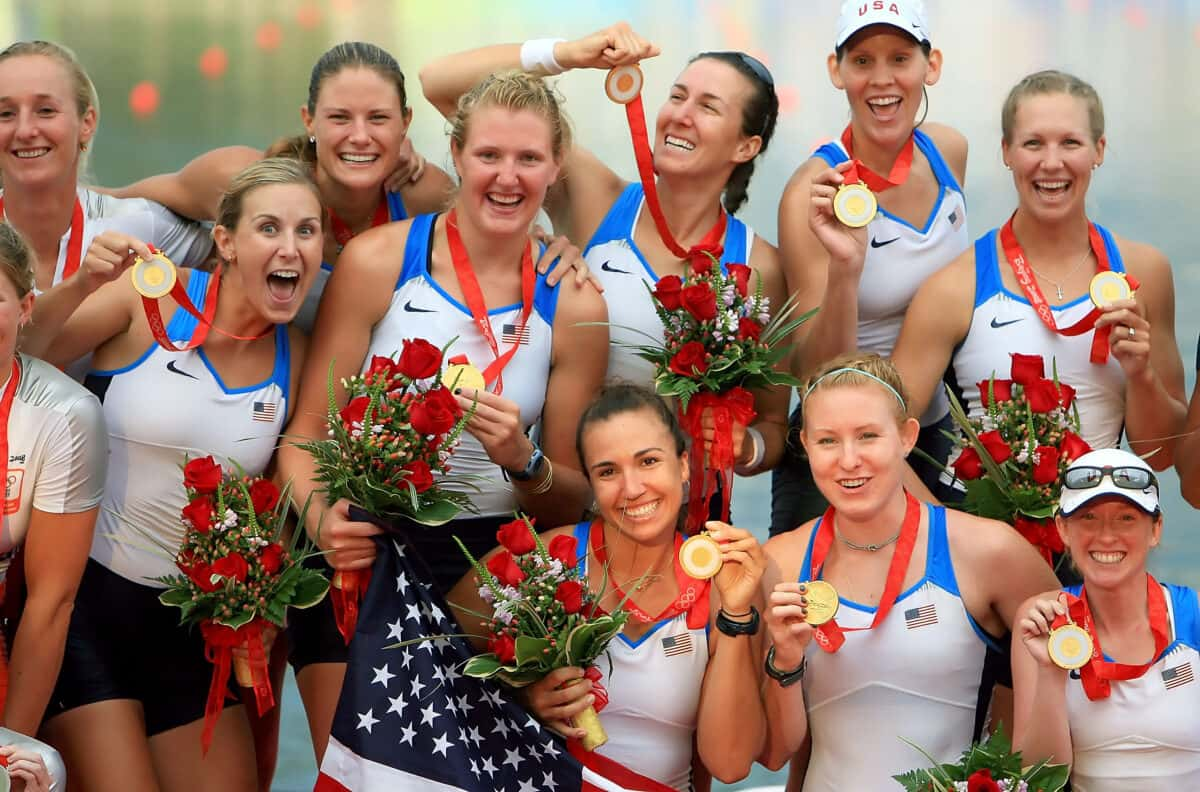
08 Jun 2021
Talking positivity with Olympic Champion, Lindsay Shoop
Lindsay Shoop is an Olympic and World Champion. She’s also a storyteller and now a published author.
Shoop’s book, Better Great than Never, not only tells the story of her life and her Olympic experience, but it also weaves in encouragement to take care of yourself and pursue your dreams.
Shoop was part of the United States women’s eight that went from, as she says, ‘being total novices’ to 11 years of consecutive wins at the World and Olympic level. On retirement, Shoop continued in the rowing world as a coach. After almost ten years of coaching, Shoop was struck by the shift from fun, personality and positivity to data, drills and numbers.
“I was motivated by some of the things I noticed as a coach,” Shoop says. “People thought they weren’t fast because it was some kind of secret training, or other athletes were more genetically gifted or special. But in my experience, what makes teams truly great is to start with the people – to allow them to be themselves, love what they are doing and then work together toward something.”
Shoop used her experience as an athlete on the U.S. Olympic team to help shape the story and the information. But her ever-positive attitude is front and centre.
“The story that’s in the book is all positive progress. It’s a manifesto on positive thinking, teamwork, coaching and taking things one step at a time. But it’s also a blueprint for how the team went from total novices to setting up a foundation for 11 straight years of winning for the U.S. women’s eight,” Shoop says.
At first, Shoop’s goal was to reach rowers and the rowing coaches. But she soon discovered that the core ideas could reach much further.
“I had to make sure that non-rowers would understand it, but that rowers wouldn’t be put off by it,” Shoop says. And so she got to work.
Shoop says that she always knew she would write a book and the chance finally presented itself. It was a combination of being at a crossroads in life, a serendipitous writing workshop and, eventually, the coronavirus lockdown that helped Shoop to get it all down on paper. Even though her first two drafts of 115 pages got scraped, Shoop eventually completed her manuscript.

So, what is the most important lesson that she wants us to take away?
“Take care of yourself,” she says. “I don’t mean that in a selfish way. When you don’t take care of yourself – you’re less creative, more irritable and can likely negatively impact the people around you.”
“The more you take care of yourself – through personal experience and scientific evidence – when you sleep, eat lots of colours, hydrate and stay active, your mood is elevated, you are more thoughtful and creative, you have better ideas and your more efficient,” Shoop says.
Shoop’s personal experience came both through a rowing overtraining and a ‘real-life’ one. After the 2008 Olympics, Shoop experienced her first true injury.
“It was the first time in my life that rowing wasn’t building me up. We won the Olympics and then I couldn’t put my own shoes on,” she says. “After that I was constantly staving off injury. And through accidental overtraining, I had other psychological symptoms. I would just start crying on the rowing machine, for example.”
Shoop’s astute observation was to compare overtraining in rowing with overtraining in life.
“Fast forward enough years, when I was coaching in graduate school, recruiting and working full-time – the same series of symptoms arose. I wasn’t as social, I was tired all the time, I was irritable, all my hair turned grey. All of these things happened all at once. I went holy cow, I am overtraining in life,” she says.
“Too many emails and not enough sleep can be detrimental in the same way that too many miles too soon can be detrimental,” Shoop continues. “And those were all influential factors in writing the book.”
For Shoop, the main message is clear: “Hope. Possibility. Positivity. Kindness. Of these things, there can never be too much. For even our smallest actions can have incredible impact. In our own lives and in the lives of others.”

